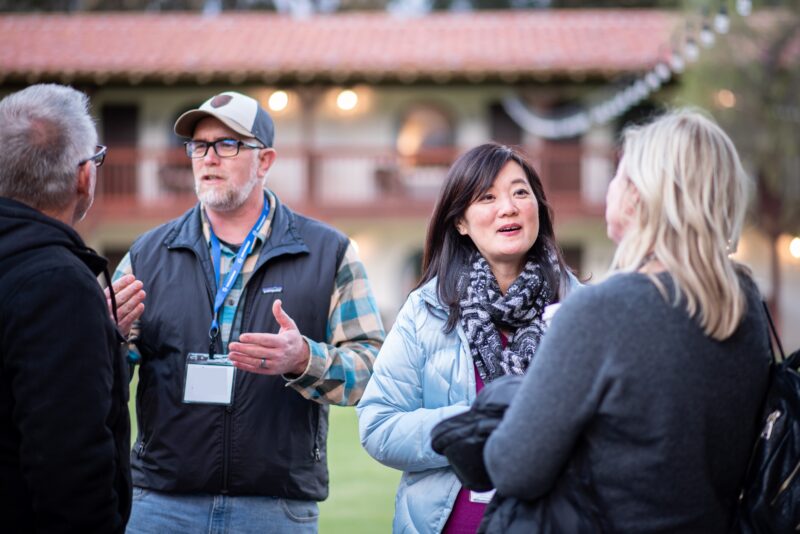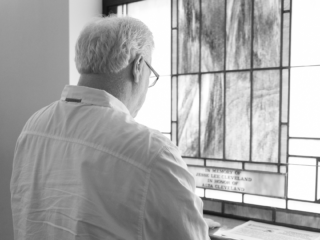Last week’s blog, “Preaching to Unbelievers,” prompted some discussion that made me realize that there’s more to say on the topic. If we are in fact preaching to unbelievers, then what should we do about it?
First, let’s remember how we got here. Do you remember the old saying, “What gets measured gets done”? The short version of how we got here is that the evangelical church started measuring the wrong thing. In the Great Commission, Jesus commanded His followers to go and make disciples.
That’s the first problem. How do you determine if someone is a true disciple of Christ? This question has dogged the church for generations. How do we confirm that someone is a follower of Christ? Paul lists the fruit of the Spirit, but how do you measure faithfulness? Do you carry kindness in a basket or a bucket? Do you weigh gentleness in pounds or gallons?
This frustration became more complicated by the “incorporation” of the church. The church was being organized and managed as if it was a corporation. We had goals and strategies and, in order to meet our goals, we had to have some kind of data to support our success or need for improvement. So, if we couldn’t measure discipleship, we did the next best thing. We measured attendance.
Attendance became the goal, the standard of success. Are you a good pastor? Well, you are if attendance is increasing. Are you a good church? Are you adding numbers? Pastors were introduced by the number of attendees in their church. Pastors gained celebrity status by celebrating the thousands of people who came to their churches.
Were these attendees disciples of Christ? Who knew? How could you tell? If they told you they were disciples of Christ – even though there might be nothing in their lifestyle or life choices that would give you any indication that they had ever met Jesus – we had to take their word for it. But that wasn’t the point.
The point was attendance.
So, the church studied Disney to discover how to make guests feel welcome. We changed our worship services to be “seeker friendly.” The less controversial we were, the less challenging we were, the more the attendance grew. As many who have studied this phenomenon have pointed out, the proclaimed theology was very comforting, but it was also as shallow as a wading pool. Jesus was presented as our friend. He loved us unconditionally and demanded nothing from us.
All of this is well and good until something goes wrong. Sadly, we live in a world where a lot goes wrong. Cancer shows up in our blood work. Accidents cripple and kill. Pandemics shut down the world. What happens to the attendees when they can’t attend church?
They stop attending. They stop attending worship services. They stop attending Bible studies. They stop attending to their faith at all.
Jesus talked a lot about agriculture. Many of His stories were about seeds, dirt, weeds, and plowing. The reason He did this is that discipleship is a lot like farming. The soil needs to be prepared. The seeds must be planted and watered. Weeds are a constant nuisance. Finally, after months of work and waiting, we finally reap the harvest.
Evangelism and discipleship are slow and intensive processes like farming. The soil of the person must be prepared. This is the work of the Holy Spirit and the only thing we can do is pray for wisdom to know when the soil is ready for the seed. When prompted by the Spirit, we plant the seed. But what happens to the seed while it is in the ground is a great mystery and again, we can only wait and pray. When the tender sprout breaks through, we can teach and encourage, but once more, true growth only comes through the Spirit’s power.
And when is the plant mature? When is the disciple ready to lead? Only the Spirit knows. There’s no measurement that tells when discipleship has completed its work. There’s no chemical mixture that changes color when a true disciple is contacted. We just have to trust a process we can’t see or control. Trying to quantify discipleship is too hard.
So, we count attendees.
For the evangelical church to survive the coming storm in North America, we have to abandon all of our corporate management techniques and get back to the basics of life-on-life discipleship. There are no shortcuts. It’s backbreaking, tedious, and dirty work, but that’s life on a farm – and that’s life making disciples.
A long time ago, I was the pastor of the First Baptist Church of Edgefield, South Carolina. Edgefield is the heart of peach country. On several afternoons, I walked through the orchards with one of my friends who owned a huge peach farm. Each day, he would pick a peach and slice it open with his knife. He would look at the peach, taste it, and decide if it was ripe. One day, the peach wasn’t ripe. The next day it was. I couldn’t tell the difference. They looked the same to me.
He laughed when I admitted my ignorance. He said, “You can’t tell the difference because you haven’t been looking at the peach every day.” He’s right. If I had been paying attention, I would have noticed the subtle differences in the growth of that peach.
That’s the difference. Disciples are examined every day. Attendees drop by once a week. This makes all the difference for a preacher. Preparing sermons for disciples and for attendees are two very different things.









